DIAMOND POLISHING, LAPPING PASTE, HIGH CONCENTRATION
Packaging: 40 gr.
Oil based (Soluble in organic solvents): for polishing of ferrous and non-ferrous metals, alloys, non-metal materials, steels and semiconducting materials.
Water based: for polishing of glass, semiconducting materials, carbide tools, dyes, sapphire.
To make selection easier: buy oil based paste in most cases and water based paste if stains may be an issue.
Grain size: Please select from the list
Diamond concentration: HIGH, INCREASED
please see the difference between concentrations below

Diamond weight per 40 gr., cts
| 100/80 | 120 |
| 80/63 | 120 |
| 60/40 | 40 |
| 40/28 | 40 |
| 28/20 | 30 |
| 20/14 | 30 |
| 14/10 | 30 |
| 10/7 | 20 |
| 7/5 | 20 |
| 5/3 | 20 |
| 3/2 | 10 |
| 2/1 | 10 |
| 1/0 | 10 |
| 0,5/0 | 10 |
| 0,25/0 | 10 |
| 0,1/0 | 10 |
Surface roughness after polishing
| Grain size, µm | Surface roughness Ra, µm | Processing | |
| before | after | ||
| 125/100 – 50/40 | – | 0,32 | grinding, fine grinding |
| 60/40-40/28 | 0,4 – 0,2 | 0,195 – 0,155 | fine grinding |
| 28/20 – 14/10 | 0,16 – 0,1 | 0,12 – 0,075 | polishing |
| 10/7 – 5/3 | 0,08 – 0,05 | 0,06 – 0,038 | polishing |
| 3/2 – 1/0 | 0,04 – 0,025 | 0,03 – 0,02 | fine polishing |
| 0,5/0 – 0,1/0 | – | – | fine polishing |
Available on stock
We have all types of diamond pastes and supply products according to customer requirements, which include: base compound (water, oil), packaging, color, concentrations. Please note, some products are impossible to make, for example, maximum concentration of 0.5/0 paste is 15% by weight.
Application
Finishing and polishing of ferrous and non-ferrous metals, alloys, steels, hard alloys, ceramics, jewelry.
30000 grit = 0.5/0 μ – fine polishing
15000 grit = 1/0 μ – fine polishing
10000 grit = 2/1 μ – fine polishing
5000 grit = 3/2 μ – fine polishing
4000 grit = 5/3 μ – polishing
3000 grit = 7/5 μ – polishing
1700 grit = 10/7 μ – polishing
1500 grit = 14/10 μ – polishing
1100 grit = 20/14 μ – polishing
650 grit = 28/20 μ – polishing
550 grit = 40/28 μ – fine grinding
325 grit = 50/40 μ – fine grinding
Monocrystalline diamond powder.
Micron diamond powders (grain size below 40 micron) are monocrystalline by default. Yes. they may be obtained by milling of polycrystalline diamonds, but this hardy makes their crystal structure “poly”, read more below.
Synthesis of polycrystalline diamonds: monocrystalline powders are pressed in a capsule, which then is exposed to high temperature and high pressure (HTHP synthesis), resulting, for example, in cutting inserts.
Synthesis of monocrystalline diamonds: graphite powder and catalyst are pressed in a capsule, which then is exposed to high temperature and high pressure (HTHP synthesis).
To receive really polycrystalline diamonds you need to use ultrafine micron powders (0.1/0 micron), obtained on super centrifuges in small amounts, because of high cost and comparatively low demand (e.g. for polishing of mirrors in space industry), so resulting crystals will be real agglomerates. But if you use powder 40 micron to make polycrystal and then mill it, you will receive powder containing monocrystals 40 micron and finer, but not polycrystalline powder.
Milling of polycrystalline diamonds for pastes does not make sense considering extra work and no benefits. Although defective diamond polycrystals are definitely milled. Fairy tales about “more cutting surfaces per particle” of diamond “micron polycrystal” were true about spiky diamond mono crystals synthesized on soviet presses long ago in a country far away. Presses, utilized now (American belt presses in South African E6 and Chinese cubic presses elsewhere) do not deploy synthesis profiles to make similar crystals. (Of course there are expensive exceptions 🙂 )
Free shipping
Contact us for combined shipping quote or bulk discounts.

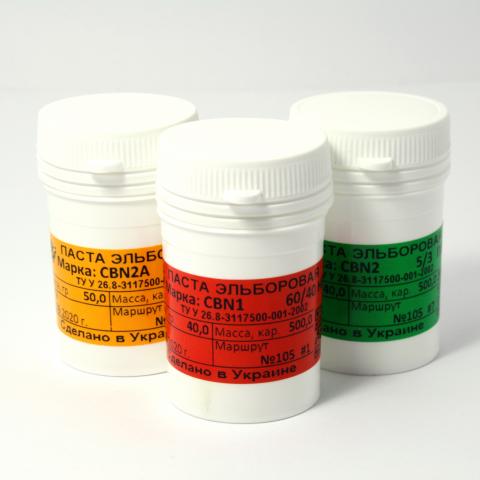
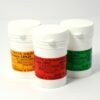

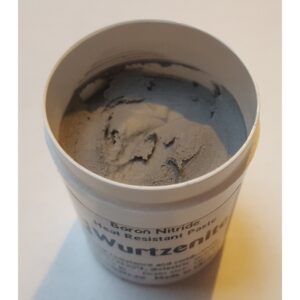
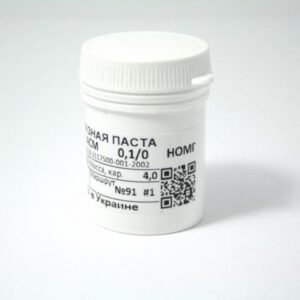
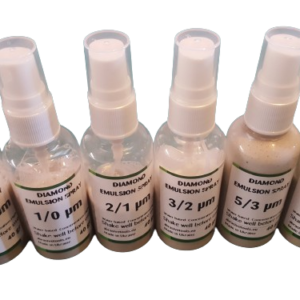
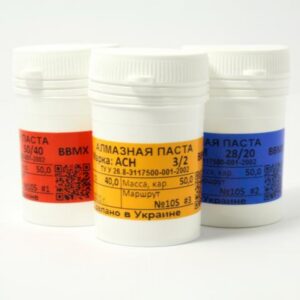
Reviews
There are no reviews yet.